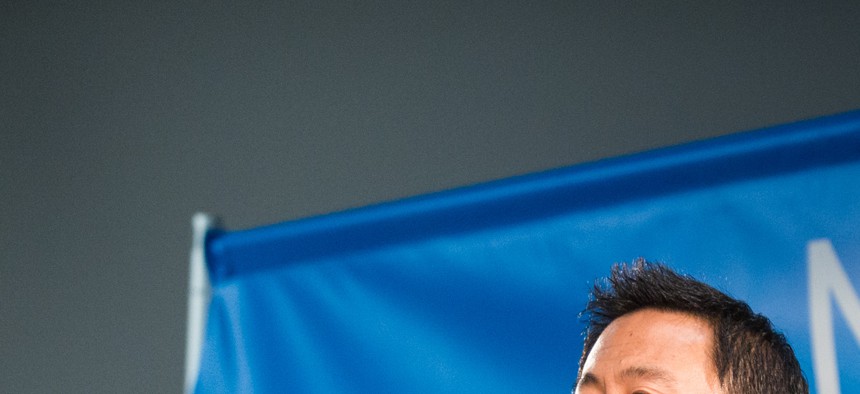So, Google Fiber Is Coming to Your City. What Are the Next Steps?

Kevin Lo, the general manager of Google's fiber-optic Internet services, announces during a news conference in Nashville, Tenn., on Tuesday, Jan. 27, 2015, that the city is among four metro areas selected to gigabit-speed connection. Erik Schelzig / AP Photo

Connecting state and local government leaders
Atlanta, Charlotte, Nashville and Raleigh-Durham are the next cities on Google’s expansion list. But it will take time and a lot of planning to make it a reality.
There are plenty of people living in Atlanta, Charlotte, Nashville and Raleigh-Durham excited by Google’s announcement this week to expand the company's super-fast gigabit networks to their cities.
“Google Fiber is the infrastructure for the next generation of innovation in Atlanta,” Kasim Reed, the mayor of Georgia’s largest city, said in a statement on Tuesday.
Charlotte’s mayor, Dan Clodfelter, tweeted “Ready, Set, Google!”
If only the process to get gigabit speeds were that easy. The folks at Google can’t simply snap their fingers and have thousands of miles of fiber-optic cable magically installed.
It takes months of planning and coordination with municipal governments to make it happen after a vetting process that, according to Charlotte’s Google Fiber information page, “included the completion of a checklist detailing information related to city infrastructure and construction permitting process to identify the feasibility of providing the internet service to that area.”
And it doesn’t always go according to plan, as was seen in Leawood, Kansas, where Google wasn’t too keen on having to meet municipal mandates to install its fiber networks underground. As a result, the company retreated from its plan to connect that sprawling Kansas City suburb to its high-speed network.
In the case of Charlotte, before installation begins, Google will be working with city officials to design the network. So-called “fiberhoods” will be selected, based in part by the percentage of residents in those areas who sign up to express interest in getting Google Fiber access.
While initial construction is expected in the first or second quarter of next year, Google Fiber service won’t be available for approximately two years after installation begins.
Once construction begins, the city estimates there might be 300 work crews laying 50 to 60 miles of fiber-optic cable per week. Roughly half of the network would be installed underground, according to the city’s information page on the project.
In a city-produced video about the Google Fiber expansion, Phil Reiger, the associate director of the Charlotte Department of Transportation, said the network will grow to 6,000 miles of fiber-optic cable in the city’s right of way.
“It’s important to understand that this is not the city of Charlotte delivering this service or building the infrastructure,” Reiger said in the video. “This is a private utility coming to the community wanting access to our right of way to provide Internet service to our residents so all of the engagement will be engagement that flows through Google Fiber.”





